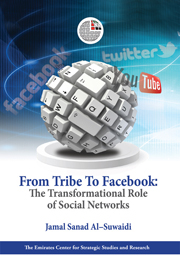Book contents
- Frontmatter
- Contents
- Acknowledgments
- Introduction
- Keywords
- Scope of the Study
- Previous Studies
- Social Networks: Concept and Role
- Statistical Indicators of Main Social Networks
- The Social Networking Age
- Data-entry Potential of Social Networks
- Impact of Social Networks
- Prospects for the Relationship between Traditional Media and Social Networks
- Legal Problems Associated with the Use of Social Networks
- Social Networks: Future Prospects
- Conclusion: Various Future Prospects
- Notes
- Bibliography
- Index
Social Networks: Future Prospects
Published online by Cambridge University Press: 05 September 2014
- Frontmatter
- Contents
- Acknowledgments
- Introduction
- Keywords
- Scope of the Study
- Previous Studies
- Social Networks: Concept and Role
- Statistical Indicators of Main Social Networks
- The Social Networking Age
- Data-entry Potential of Social Networks
- Impact of Social Networks
- Prospects for the Relationship between Traditional Media and Social Networks
- Legal Problems Associated with the Use of Social Networks
- Social Networks: Future Prospects
- Conclusion: Various Future Prospects
- Notes
- Bibliography
- Index
Summary
Perhaps the only constant factor when discussing social networks (Facebook, YouTube, Twitter, Google+ etc.) is that they are on track to consolidate their position as the fifth estate, superseding the fourth estate (the press)—a position held throughout the 19th and 20th centuries as an instrument to monitor other authorities. This situation is beginning to change with the advent of social networks and the balance of power is shifting from the gatekeepers in traditional journalism to the ‘fifth estate’ represented by new Internet activists such as citizen journalists, who have acquired a legitimacy through real-life experience. The traditional fourth estate no longer has its former presence, but has become a mere follower, conveyor and promoter of the new estate, and is no longer capable of withstanding the sweeping power and influence of the new estate.
Researchers generally agree that the future will bring further qualitative developments, either in terms of the development of social networks themselves or in their effects; however, there are clear differences between their expectations and scenarios for the future. Some indicate that computing power will increase eight thousand-fold by 2026 (according to Moore's Law, based on Gordon E. Moore's 1965 prediction that processing power would double every 18 months). Video phones will be accessible in every location, rendering users ‘omnipresent’ and gradually reducing the need for face-to-face contact or communication. Forecasts indicate that the world's population will reach more than 8 billion by 2026, of which three billion will be using the web.
- Type
- Chapter
- Information
- From Tribe to FacebookThe Transformational Role of Social Media, pp. 109 - 117Publisher: Emirates Center for Strategic Studies and ResearchPrint publication year: 2013



